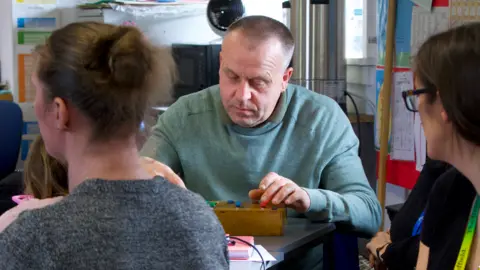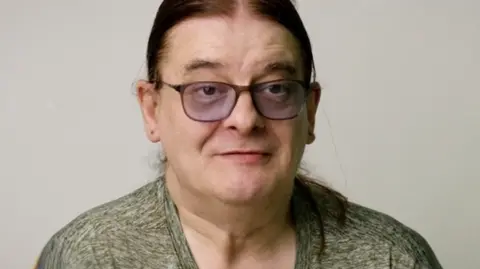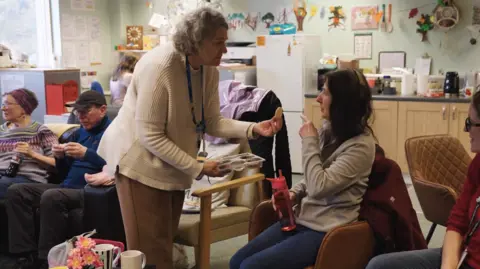New film explores early-onset dementia and music
 University of Sheffield
University of SheffieldA documentary exploring the relationship between early-onset dementia and music is to be screened later.
The premiere of Living with Young Onset Dementia: Our Music, Our Voice will be held at the Pavillion in Hillsborough Park.
Produced by the University of Sheffield in partnership with charity Age UK, the film examines how music can improve outcomes for people between the ages of 30 and 65 who have been diagnosed with the condition
Senior research fellow Jenni MacRitchie said while music was not a "cure all" it could be use to stimulate memories and help keep people connected.
 Open House Pictures / UoS
Open House Pictures / UoSHoward Gordon, 62, who features in the film, was diagnosed with early-onset dementia aged 54.
"I grew up with music, listening to music, playing music, and I used to compose music," he said.
He said his favourite music ranged "from classical to punk".
"It can be uplifting, it can raise your mood, but some heavy metal will make me feel angry at times," he said.
"It affects people in different ways, at the end of the day, every person with dementia is different.
"We're not defined by our diagnosis, we are human beings, and every human being is different."
 Open House Pictures / UoS
Open House Pictures / UoSDr MacRitchie said music was not a "cure all" for dementia and people respond differently.
"It's not 'if everyone does music, we'll all be happier', it's really if someone has a passion or enthusiasm for music, it might be something that's part of their support.
"It's something that could be about stimulating past memories or giving a mood boost, but it's also incredibly social - it's that part of keeping connected to others."
She said it was important to break "assumptions and stereotypes" surrounding dementia.
"We'll typically think of someone older, someone frail and vulnerable, liking a particular piece of music.
"Even for those older adults, we need an overhaul of what music can offer, because they have a wide diversity of tastes and wants."
She said they had also been investigating different ways that new technology could be used to help people access and listen to music, or even make it themselves - for example, by using voice activated speakers.
"We've been discovering more about when it helps, when it doesn't help, and really trying to challenge those stereotypes around what engaging in music might look like."
Listen to highlights from South Yorkshire on BBC Sounds or catch up with the latest episode of Look North.
